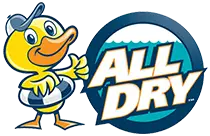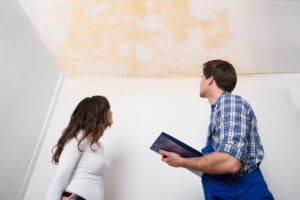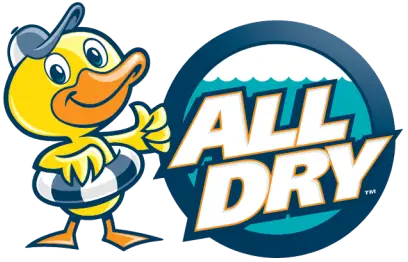When you’re moving into a newly rented space, you’re responsible for every stage of the process. But when it comes to repairs, who is responsible—you or your landlord?
Due to weather conditions, many Bear River, UT residents and neighboring cities often require storm damage restoration or mold removal services. But repairs aren’t cheap. The Utah Department of Public Safety states that just an inch of water can result in damages worth $25,000.
Knowing the basics of Utah tenant law will help you avoid paying these steep prices. It will also help settle disputes with your landlord about who pays for what repairs. If you want to learn more about Utah rental laws and landlord rights, this article will help you.
Utah Tenant Rights and Responsibilities for Repairs
Under Utah’s landlord-tenant law, repair responsibilities are typically outlined in your signed lease agreement. This document serves as a reference for dispute resolution. The contract should clearly state who is responsible for repairs, the process of reporting them, and how repair costs can be deducted from your rent if you cover them.
To help you understand Utah tenant law, here is a breakdown of your and your landlord’s responsibilities.
Your landlord’s legal responsibilities
Utah’s Fit Premises Act outlines that tenants have the legal responsibility to provide safe and sanitary housing to tenants. Now, what does this mean? According to Salt Lake City’s code chapter 18.96.050, these include providing the following:
- Plumbing
- Sanitary
- Heating
- Ventilation
- Hot water
In other words, your landlord is responsible for repairs that impact your living conditions according to Utah rental laws.
For instance, suppose heavy rains flood the property. Water damage can impact the structure and lead to mold development. The landlord is responsible for contacting home floor repair services from a licensed restoration company in Utah.
In cases of water damage, Utah professionals such as All Dry provide water damage restoration services to bring the property back to its best condition.
Your responsibilities as a tenant
You may have to pay for the repairs if they go beyond your duties as a tenant. Besides paying rent on time, Utah code Title 57-22-5 outlines your responsibilities as a renter, which include the following:
- Ensure the cleanliness of the area
- Maintain plumbing fixtures
- Use utilities reasonably
The damage you cause to the property beyond regular wear defined in your lease agreement will be accountable to you.
For example, if the landlord and tenant know that foot traffic can easily scuff the floor, the landlord is responsible for restoring it. However, landlords have the right to use your security deposit for excessive damages caused by you, such as intentionally breaking a window.
If something needs repair, document it and inform your landlord immediately. Getting the damage in writing protects your Utah tenant law rights if the landlord promptly fails to address your concerns within 24 hours.
What you can do if your landlord fails to make timely repairs
If the landlord fails to follow through with the repairs, you have the following options:
- Work with local authorities: Reaching out to your local health department or building inspector can encourage landlords to undertake necessary repairs. You can also file a Notice of Deficient Conditions, indicating that the property you’re living in doesn’t meet legal standards.
- Terminate your lease early: If you’ve given the Notice of Deficient Conditions, you may decide on rent abatement, which allows you to terminate your lease early. It can be a lengthy legal process, so consider this option carefully.
- Reduce next month’s rent: Under Utah’s Tenant Repair and Deduct provision, you may pay for the repairs and deduct it from next month’s rent.
It’s highly recommended to seek professional advice if you decide to take legal action against your landlord.
Tenant Law in Utah: Frequently Asked Questions (FAQs)

Utah rental laws can often be confusing, especially if it’s your first time renting property. Find answers to common questions about Utah tenant law to enhance the awareness of your right.
How long does a landlord have to make repairs in Utah?
Landlords must begin repairing damages 24 hours after you notify them.
Can a landlord visit the rented property at any time in Utah?
No, unless there is an emergency or the tenant agrees. However, these are exceptions.
Landlords may visit the property to evaluate its state, but only at reasonable times. As part of your renter’s rights, Utah prevents landlords from visiting unannounced and must notify you at least 24 hours ahead.
Can a tenant sue a landlord for mold in Utah?
Yes. Mold development threatens the health and safety of the tenants. Because of this, tenants may take legal action against landlords for failing to meet their legal obligations.
Is the tenant responsible for repairing normal property wear and tear in Utah?
No. Landlords are responsible for paying for normal wear on the property from a tenant’s regular usage. However, tenants may be liable for the damages they cause beyond what’s reasonable.
What are some resources for tenants and landlords to resolve repair disputes in Utah?
Tenants and landlords can refer to Utah’s tenant’s handbook for rules and regulations of renting agreements. They may also review the following for more information:
- Utah Fit Premises Act
- Utah Renter’s Handbook
- Utah Courts Website
- Utah Legal Services website
- Utah Apartment Association website
Know Your Rights to be a Responsible Utah Tenant
Moving in comes with new responsibilities, including maintaining the property. But, if critical parts of the house break due to regular usage, such as plumbing issues, the landlord is responsible for arranging and covering the costs of repairs, including plumbers and odor removal services in Utah.
It’s important to be proactive with your landlord and communicate with another about potential repairs. In cases where the landlord places the responsibility of repairs on you, it’s best to contact professionals to help you care for them.
All Dry’s expertise in dealing with property issues, such as water damage and mold, among others, can assist in ensuring your rented space is healthy and safe. Contact All Dry for the restoration and remediation services you need today.





